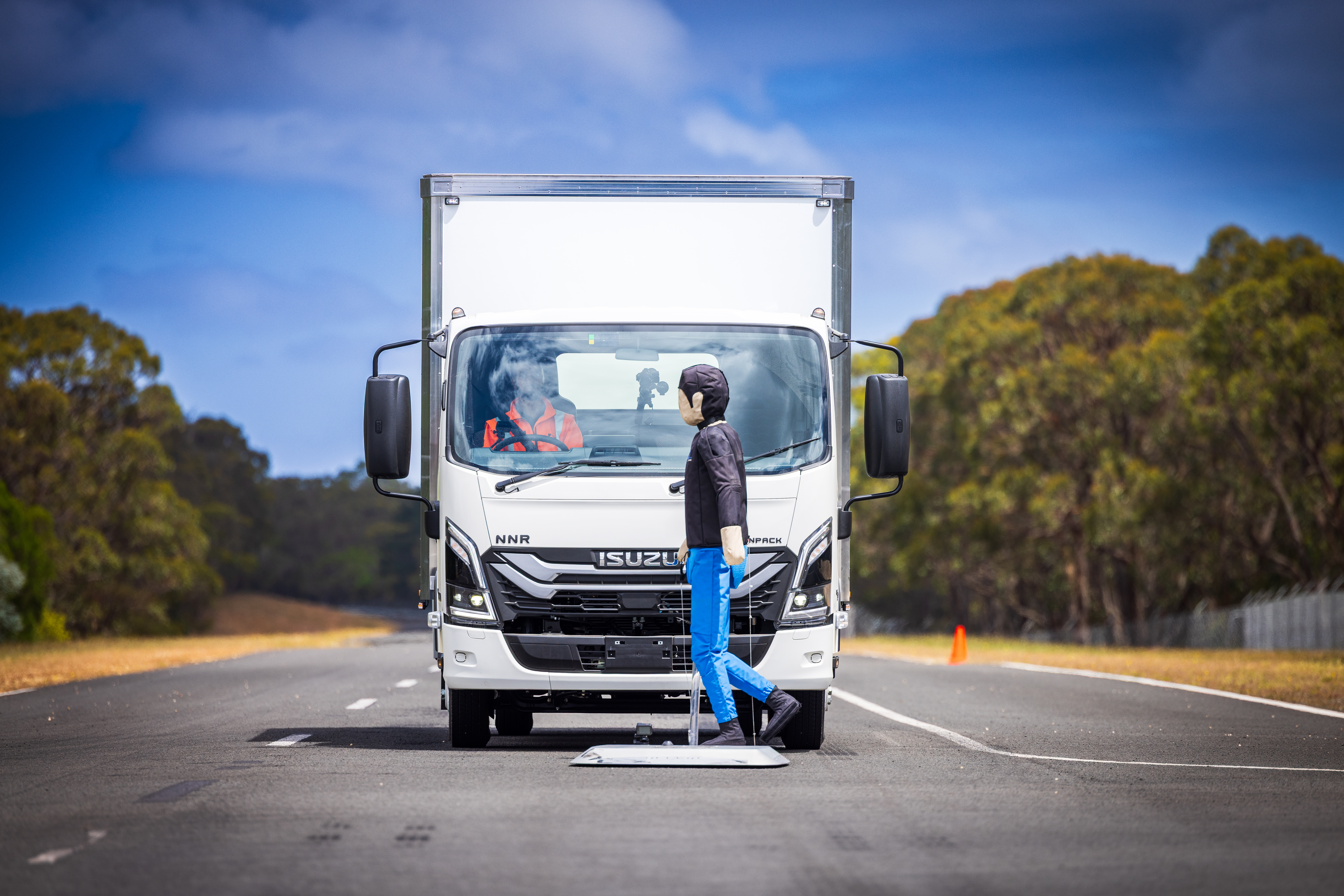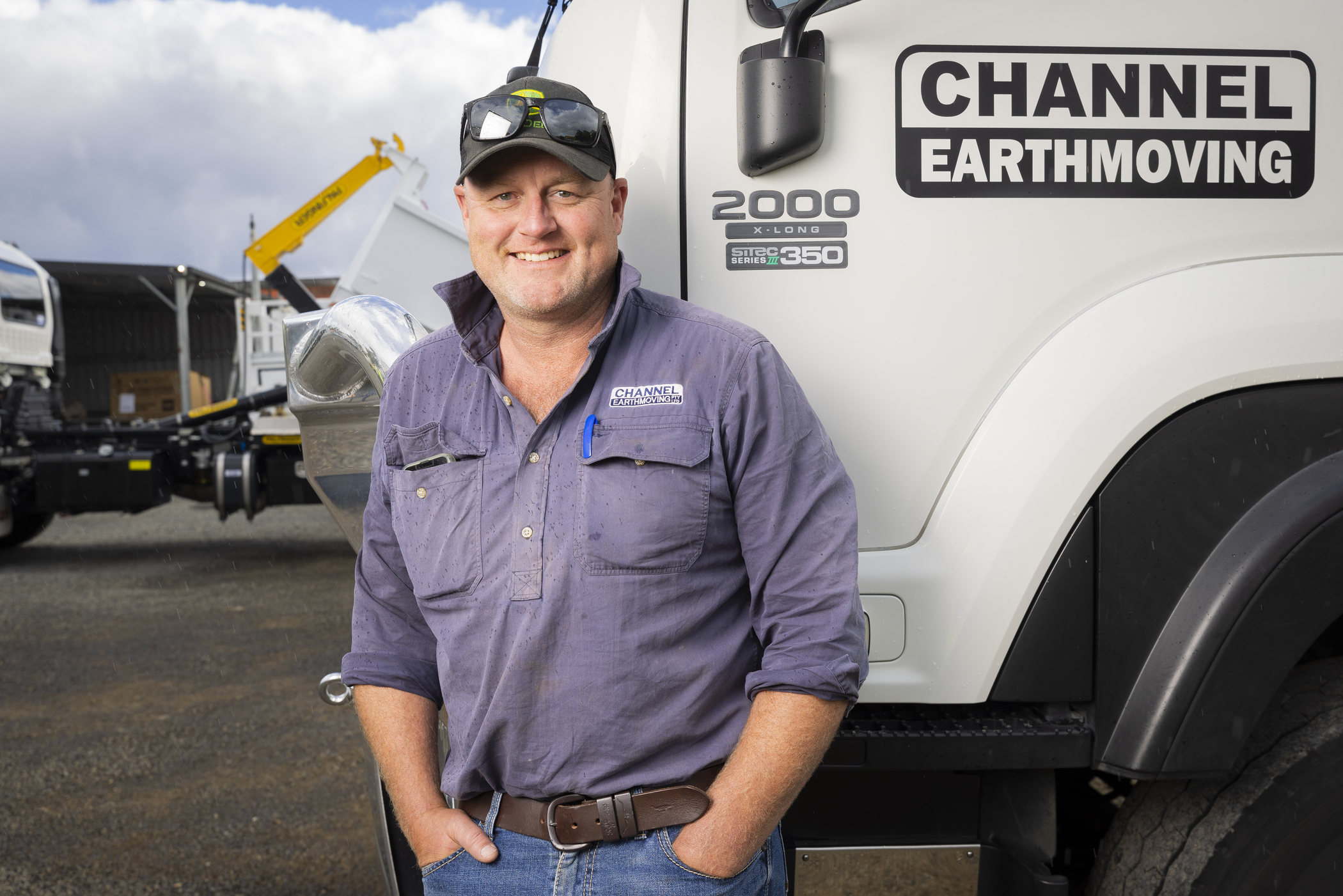Talkin’ about a battery revolution
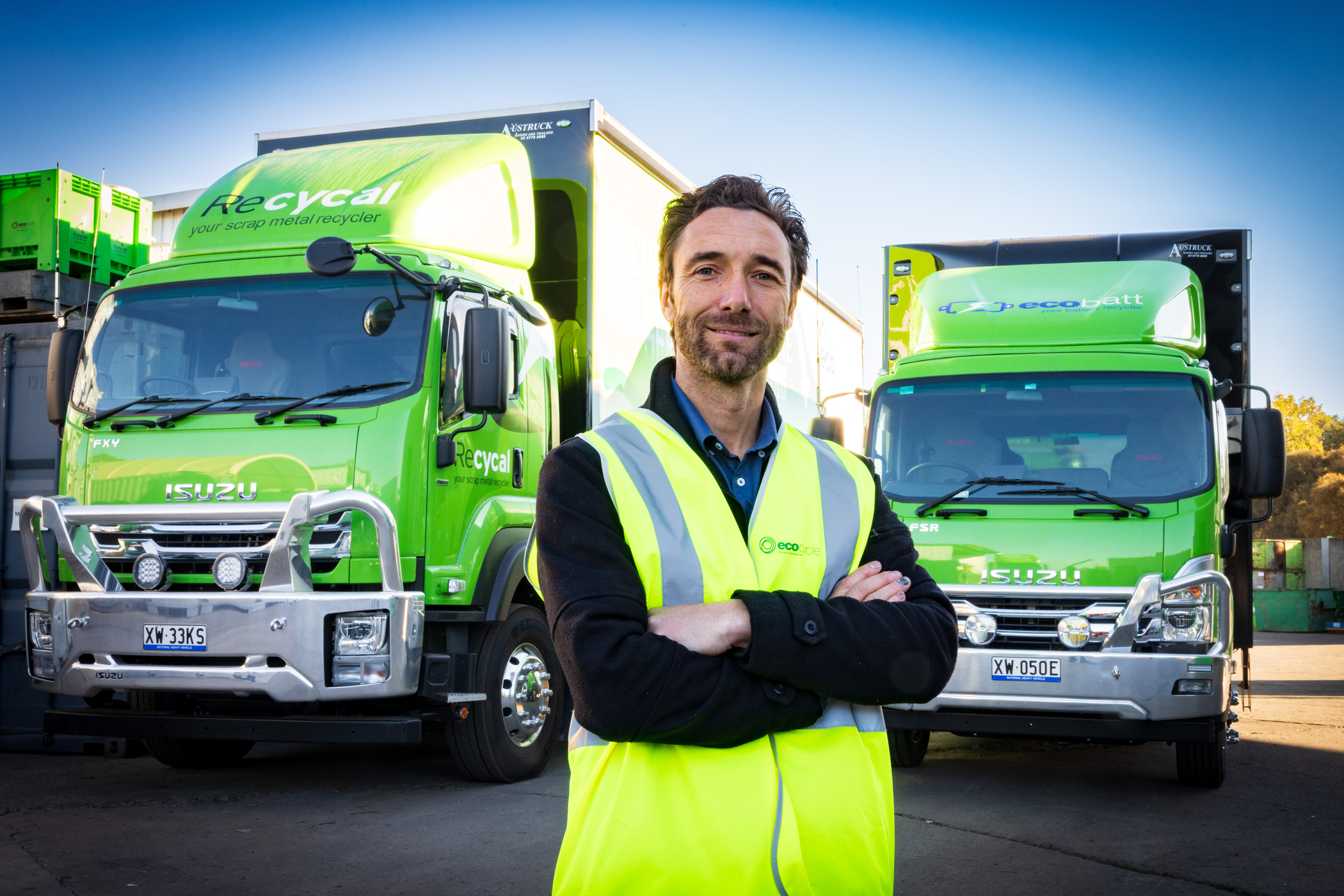
When it comes to recycling, the majority of Australians have a pretty good understanding of how to sort and dispose of waste correctly and do so for the right reasons.
Over the last two decades, battery waste and our management of it, has become a priority due to the sheer volume of battery-powered devices, tools, and aids pervading our day-to-day lives.
It’s estimated that over 22-million kilograms of portable batteries are discarded each year in Australia, with approximately 47 per cent of these identified as lithium-ion batteries with an average life expectancy of three to five years.
A portion of batteries—around 15 per cent of portable batteries under five kilograms of weight according to government figures—are collected for recycling from public kiosk points located at retailers such as supermarkets and hardware stores.
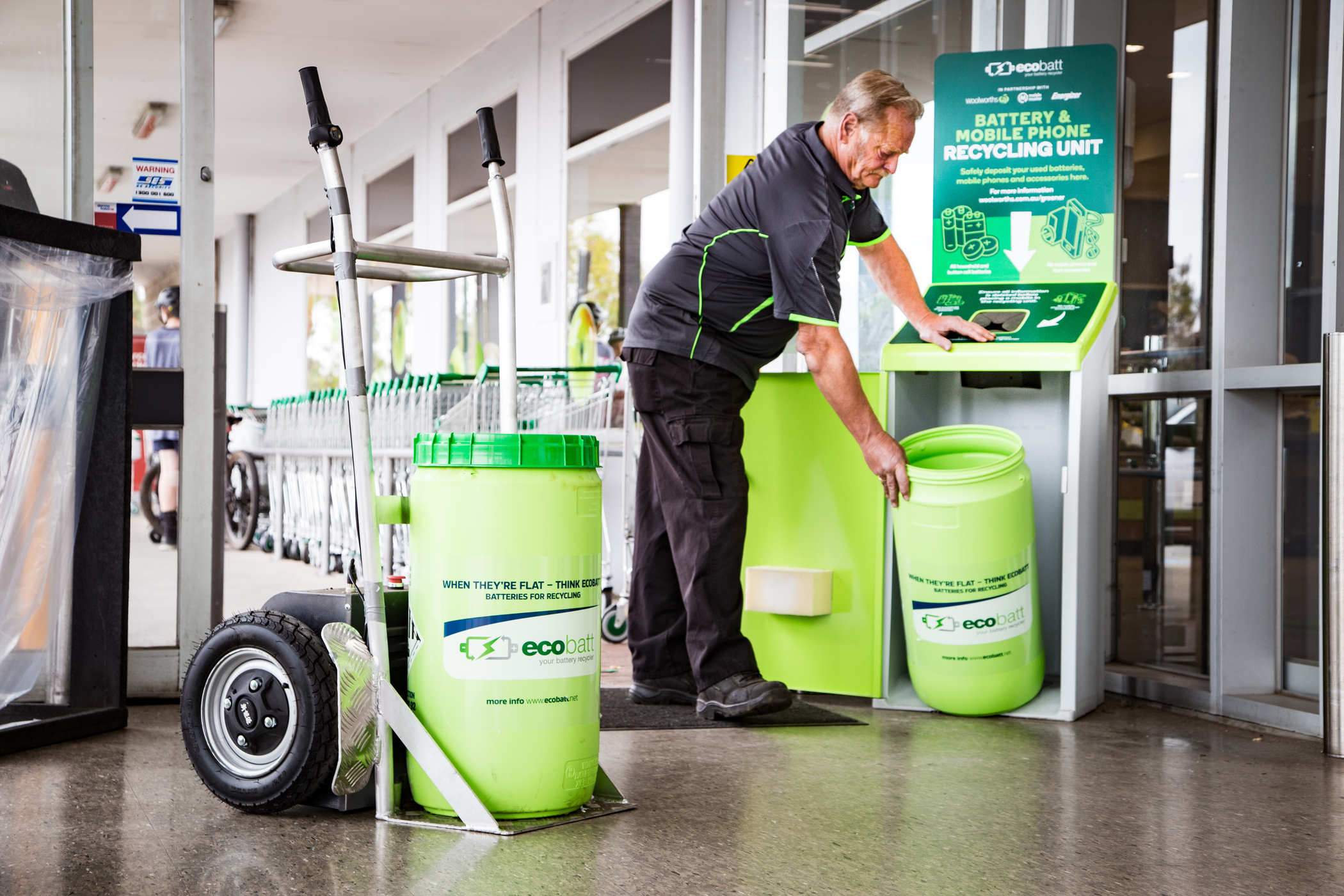
Regretfully, this leaves the rest disposed of in general waste, co-mingled with curbside recycling bins or simply discarded in the environment.
Improving targets
Of great concern is the rising risk and incidence of fires in rubbish compactors and landfills that can occur when lithium-ion batteries are crushed or incorrectly processed.
This can lead to environmental risks including toxic electrolyte leakage, heavy metals exposure, loss of valued metal oxides, and the risk of lithium-ion batteries reacting with water in the future.
Australia’s industry-led and consumer levy-funded Battery Stewardship Scheme (BSS) is making strides in promoting best practice battery recycling and waste management for end-of-life batteries at present.
Also providing leadership in this space is Melbourne-based, third-generation recyclers, Ecocycle Group, and more specifically their national fleet of battery collection trucks and recovery sites, which come under their Ecobatt banner.
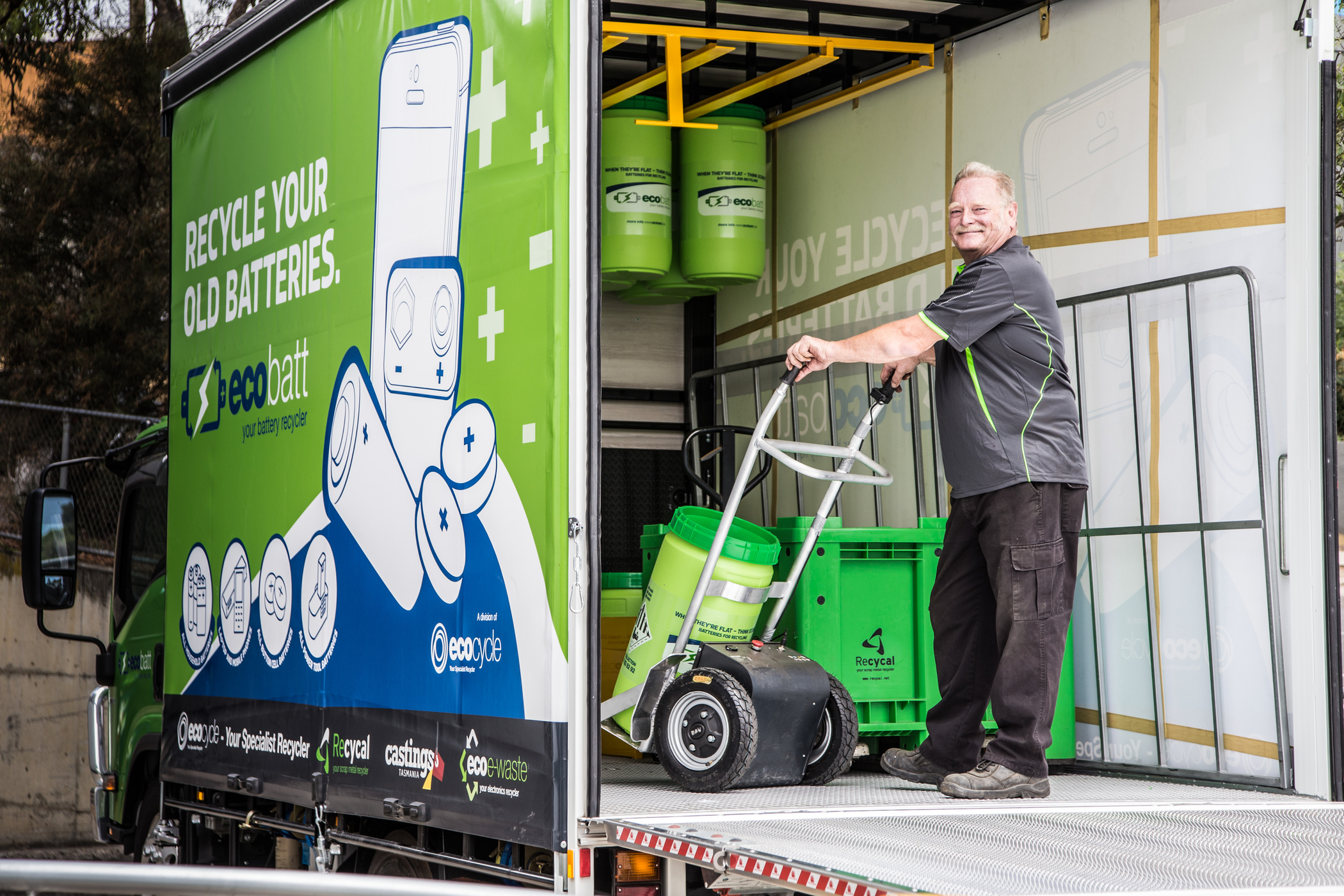
A movement begins
Ecocycle Group Operations Manager, Jason Zorzut, said the industry has been searching for innovative, environmentally sustainable solutions for battery waste and recovery but that it hinged on factors such as consumer awareness and education, and the convenience of battery recycling drop off points to affect behavioural change.
“We’ve always specialised in the recovery of a range of ferrous and non-ferrous metals, like silver and mercury,” Jason explained.
“We have diversified over the years into battery recycling, which we see as a major step forward in Australia’s circular economy to recover critical elements like lithium, nickel, cobalt, manganese and copper from post-consumer e-waste streams.
“Somewhere in the vicinity of just 15 per cent of all batteries are currently being recycled properly—we'd like to get that number up to the 60 to 70 per cent mark, like they’re doing over in Europe.
“We're only in the beginnings of a movement here in Australia and scratching the surface of what must be done to preserve critical materials otherwise lost to landfill and presenting a major environmental issue for generations to come.”
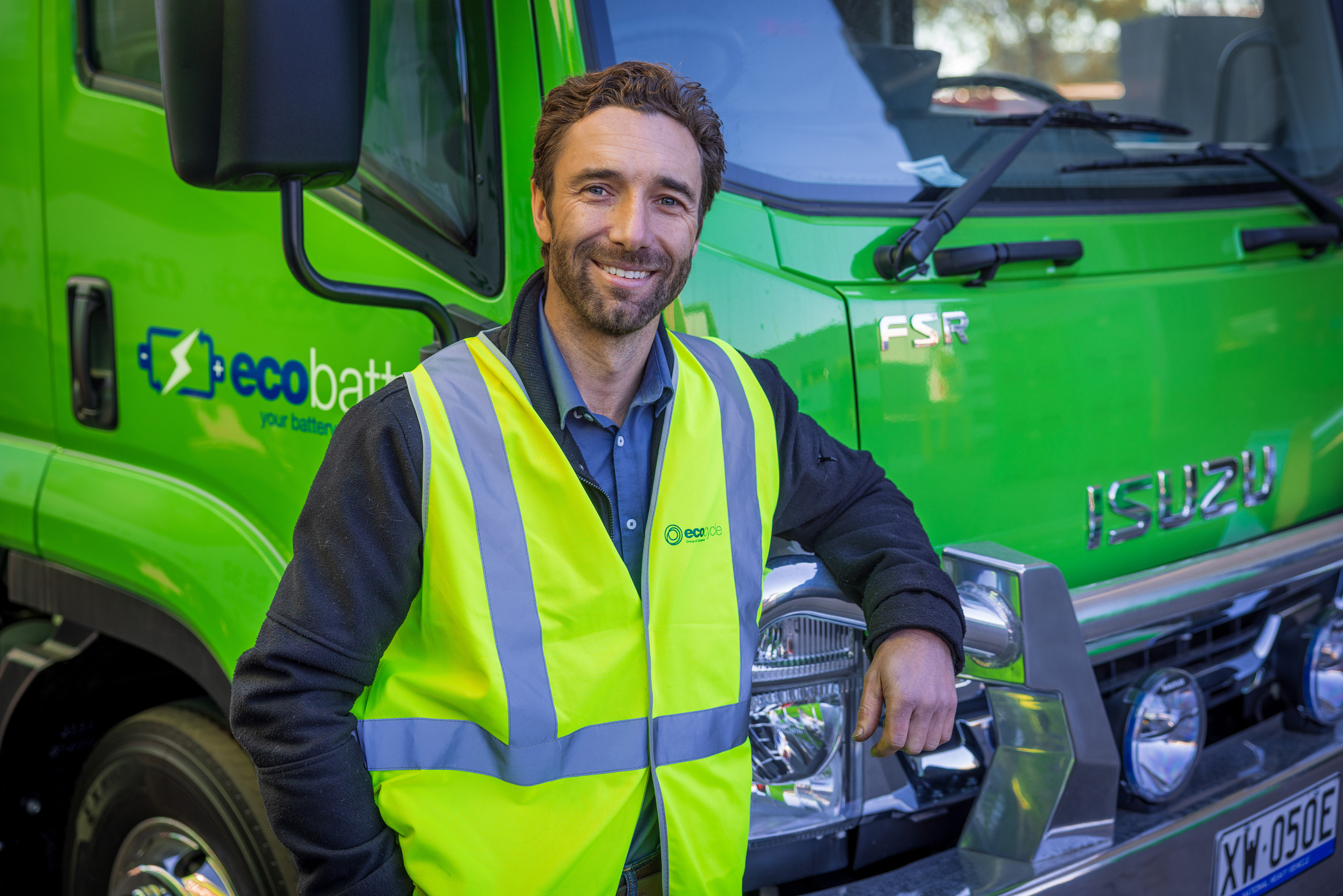
Ecocycle Group Operations Manager, Jason Zorzut, says the industry has been searching for innovative solutions to address battery waste and recycling
Collectables
A key element of success in the overall recovery process is procuring the unwanted batteries themselves, a service that Jason and the team offer through their fleet of Isuzu F Series trucks in Ecobatt’s national operation.
Delivered as part of the national Battery Stewardship initiative, Ecobatt established their battery collection service via a series of drop-off points located at retailers such as Coles, Woolworths, IGA, Aldi, Bunnings, JB Hi-Fi and Big W, as well as proactive local government facilities.
Jason’s team collects end-of-life battery waste across designated zones and then safely transports surrendered batteries, e-waste and other built-in battery devices such as vapes.
“Safety is paramount, so all collection kiosks are monitored 24/7 for fill levels, temperature and GPS location,” Jason said.
“We are collecting the post-consumer batteries, transporting them, sorting them into their different chemistries, and then processing them for the recovery of a concentrate of precious and critical materials for further downstream processing.”
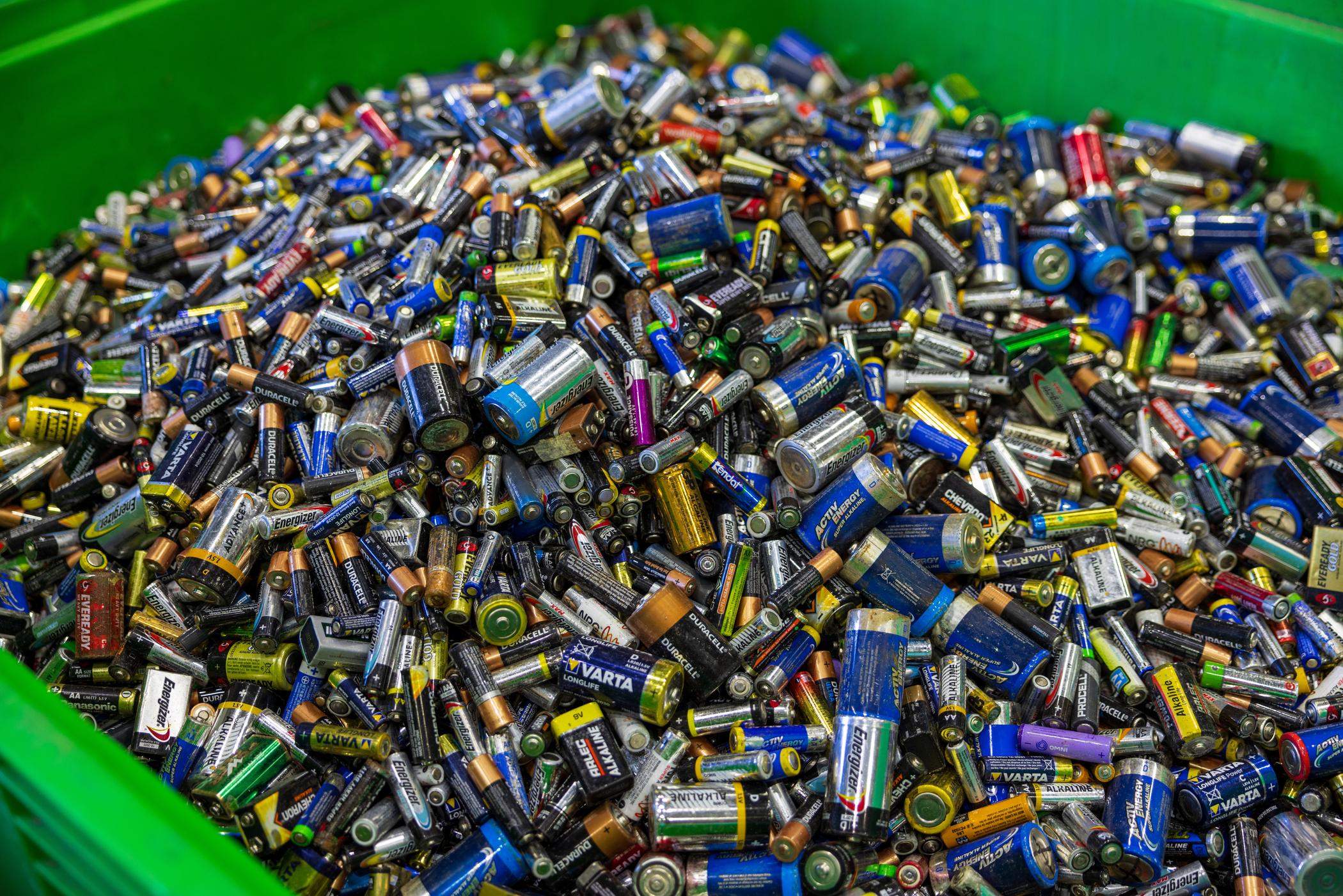
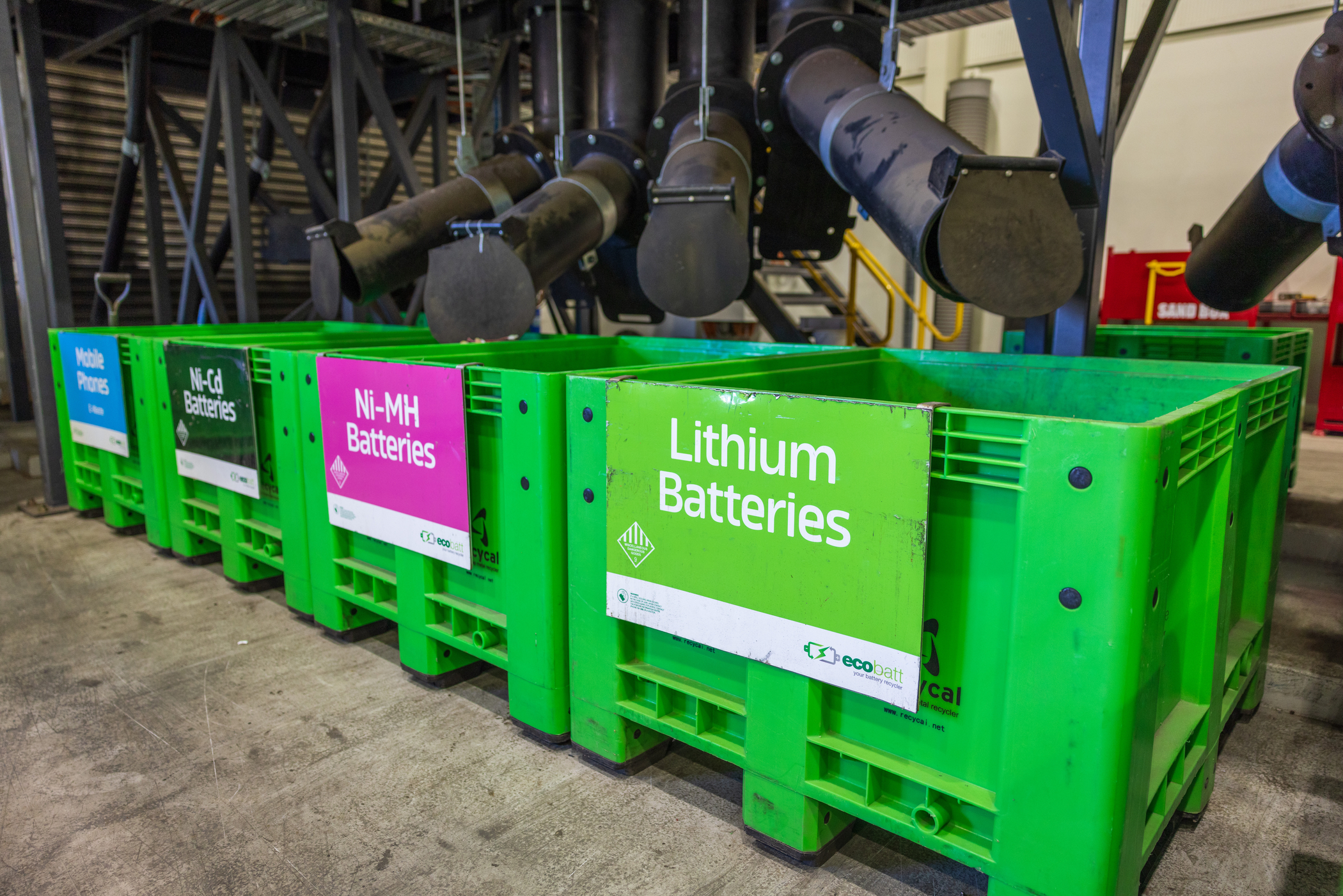
Fleet of foot
Across the group, Ecocycle has around 80 vehicles in their fleet, with prime movers carting steel and metal recyclables, and heavy rigid vehicles engaged in end-of-life battery waste collection.
They’ve recently expanded their mid-size fleet line-up with models from Isuzu Trucks’ capable FX and F Series ranges.
A number of long-wheelbase FXY 240-350 Autos are involved in intrastate material collection jobs, fitted with 14-pallet automatic mezzanine floors from Austruck Bodies to utilise space and streamline loading via forklift from the sides.
New six-cylinder FSR 140-260s, wrapped in the distinctive green colours of the Ecobatt banner, have been specially fitted to safely store battery collection drums. These drums are loaded onto the truck by trolley via a hydraulic tailgate once they have been collected from drop-off points at partnering retailers.
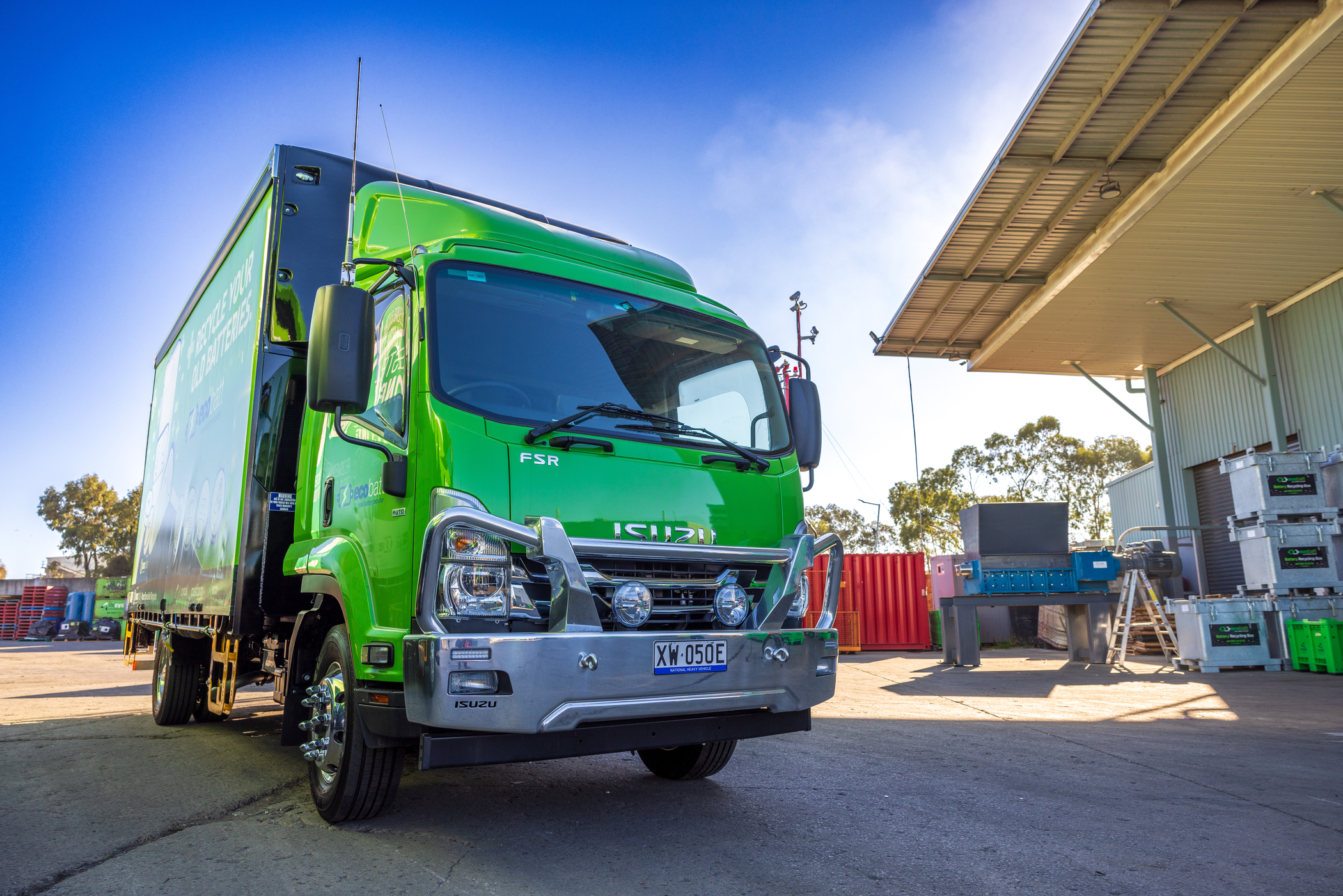
Isuzu's six-cylinder FSR 140-260s join the Ecobatt fleet
Jason explained the need for the battery collection fleet to be as versatile as they are reliable, a key point when landing on the Isuzu FSR platform for the job.
“We went with the FSR because we were looking for that mid-sized truck, something that was capable of carrying the weight with a large enough tray deck to suit our needs,” he said.
“We're not always carrying maximum weight capacities, but we need to be agile enough to get into the tighter loading docks and facilities we access.”
The right fit
With a Gross Vehicle Mass (GVM) of 14,000 kg, the FSR 140-260 is right on the money when it comes to the overall chassis dimensions and load capabilities that Jason was looking for.
Producing 191 kW (260 horsepower) @ 2,400 rpm, the FSR’s six-cylinder Isuzu 6HK1-TCC engine can tackle the larger loads and gradients, while offering a safe and comfortable workspace for drivers with generous cabin appointments such as an Isri 6860/875 air suspension driver’s seat.
Alongside safety as an absolute non-negotiable, drivability and handling were high on Jason’s list of priorities when it came to selecting the right platform.
Fitted with the 6-speed Allison LCT2500 automatic transmission, the FSR fleet has proved to be a joy to drive around town or up the highway.
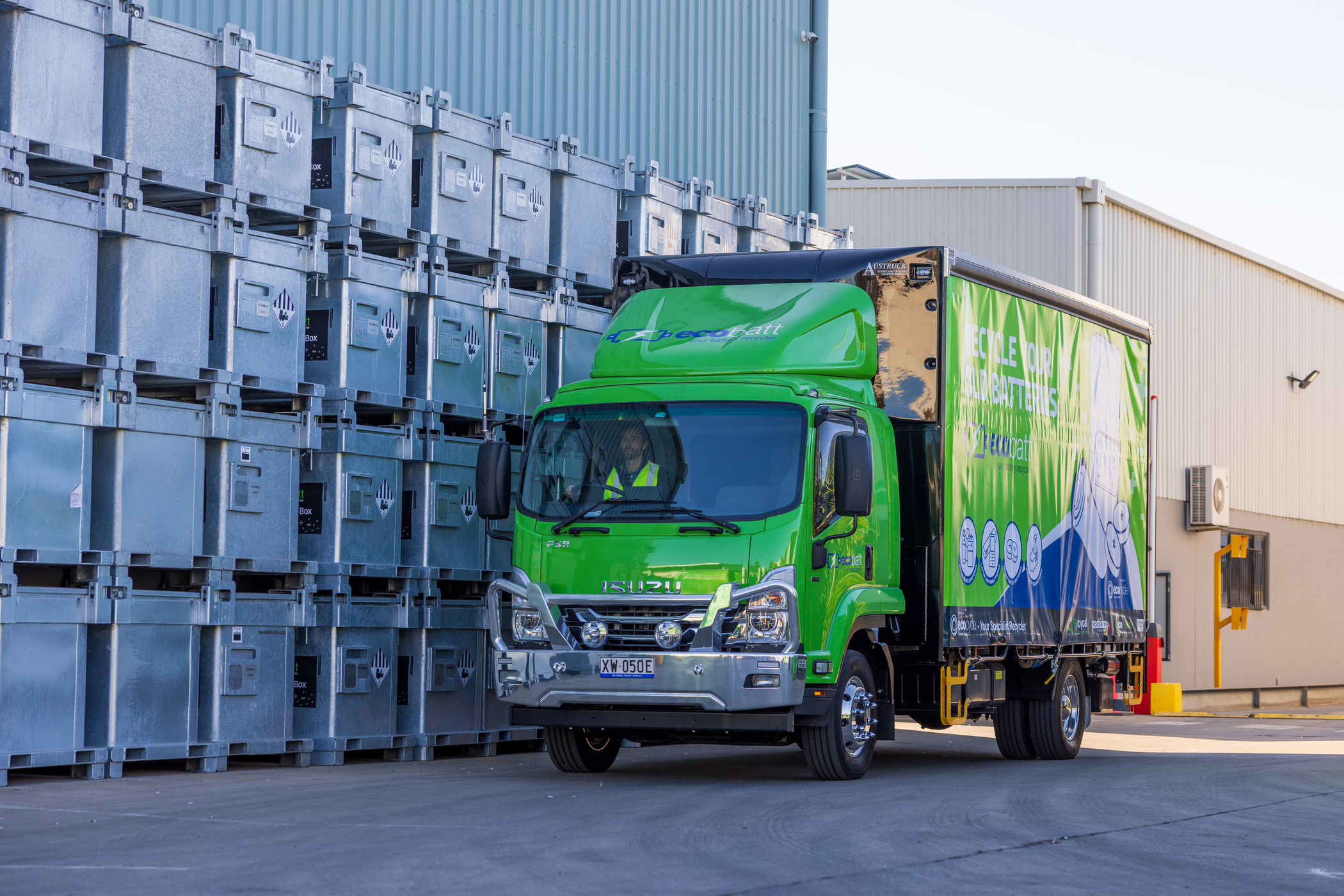
An abundance of caution
Key safety and compliance boxes have been ticked with the FSR’s Anti-Lock Braking (ABS) and Anti-Skid Regulator (ASR) joining driver and front passenger airbags in a solid on-board safety suite.
Given the volatility of the cargo, safety considerations understandably extend well beyond the cabin.
“We've specifically designed the FSR’s van bodies to have aerosol suppression and fire detection mechanisms,” Jason explained.
“Given the nature of what we’re carting and the mix of battery waste on board, each of the vehicles has been designed specifically for the purpose of safe collection.
“For versatility, we've also fitted automated mezzanine decks on the FXYs, so the drivers can change the configuration of the vehicle at any time while they're on the road.”
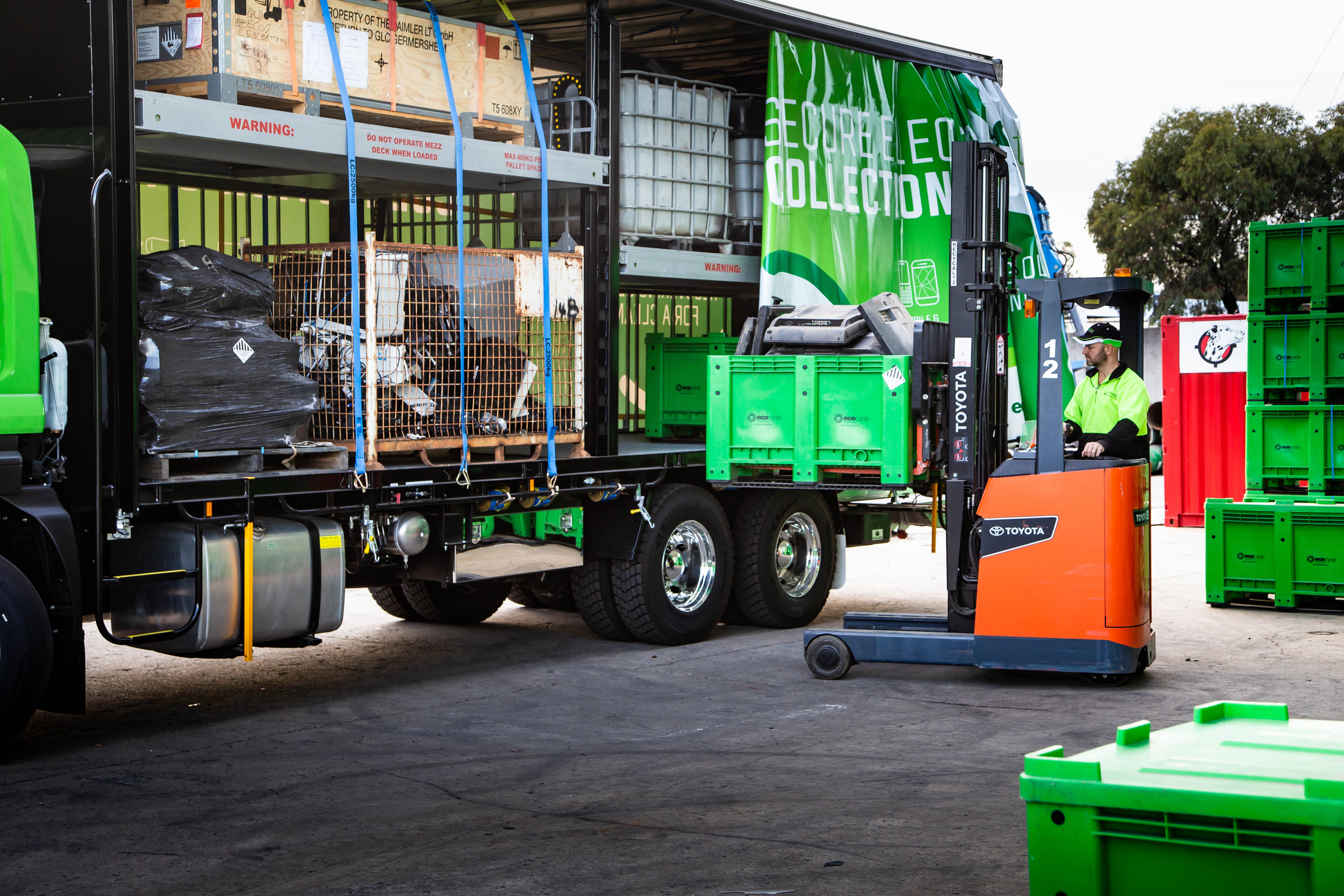
Automated mezzanine decks allow for easy configuration during collection rounds
A matter of trust
From their state-of-the-art, flagship waste recovery facility in Melbourne’s north, to their spotless transport fleet, Ecocycle has invested heavily in some of the best equipment in the world.
They’ve extended that ethos by staking their reputation with the country’s top-selling truck manufacturer, opting to protect the fleet with Isuzu Total Service Agreements (Isuzu’s most comprehensive service coverage) on new purchases.
They’re also backing up older models with Isuzu Heritage Service Agreements to ensure trucks are kept in peak condition.
“We run some older Isuzus that have been fantastic for us and that was why we chose to stay with them… we like the continuity with all of our vehicles, so any driver from any state can hop into a vehicle and know how to safely operate it,” Jason said.
When it comes to their equipment, relationships clearly matter to this company. As Jason identifies, brand loyalty and collaboration brings with it excellent service and added peace of mind.
“We've had a long-standing relationship with the team at Patterson Cheney Isuzu (Keysborough) in the purchasing of all our vehicles over the past decade.
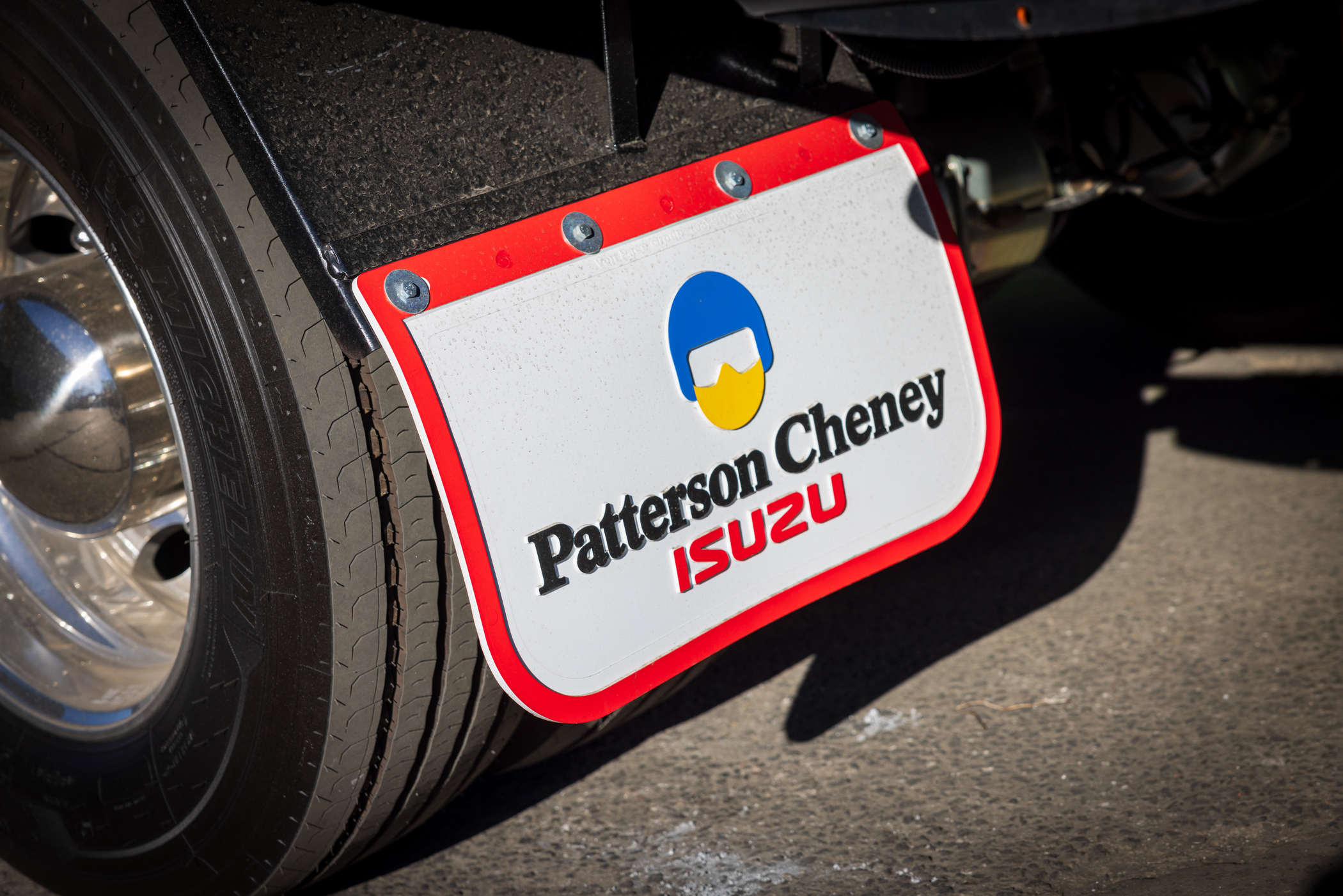
“They’ve been invaluable in terms of assigning the correct, purpose-built vehicles for us, as well as organising everything from the purchasing process, all the way through to delivery and everything in between,” Jason said.
“We’re passionate about what we do and making a change within our industry, so for us, investing in Isuzu means more time on the road, more collections and more customer satisfaction.”
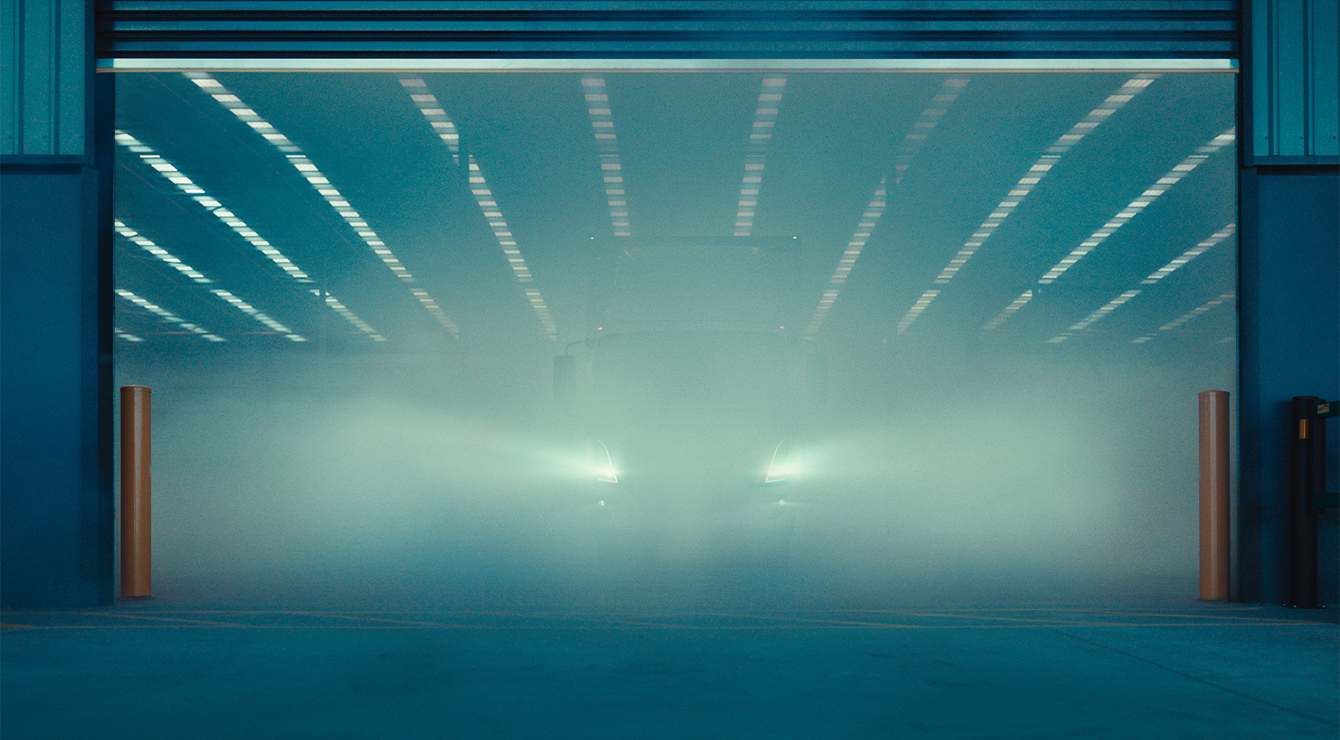
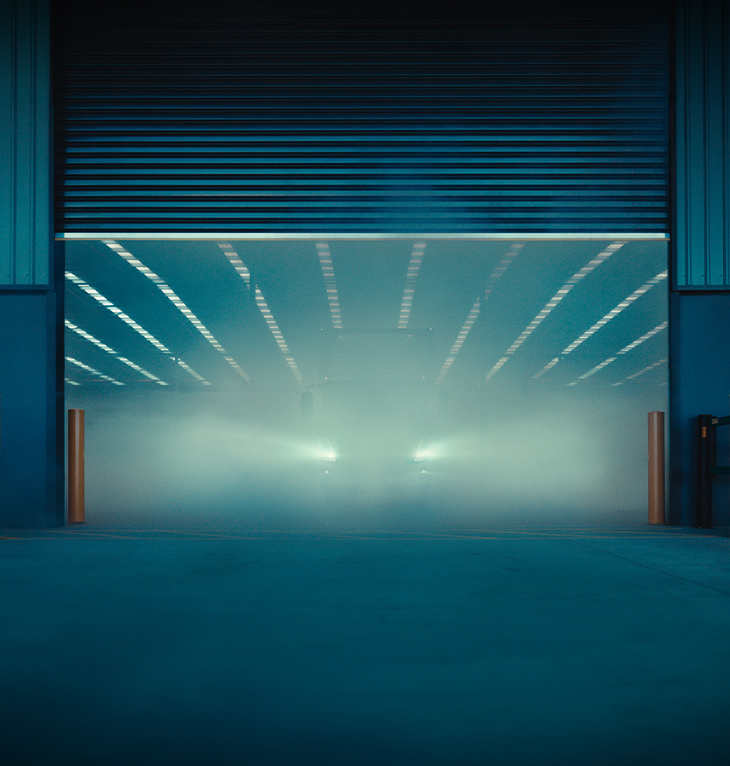
The all-new Isuzu truck range is about to arrive.
Register your interest and we'll keep you in the loop with the latest updates.
Learn More
